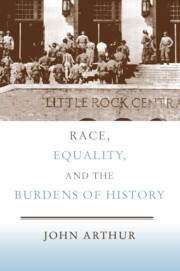5 - Poverty and Race
Published online by Cambridge University Press: 03 December 2009
Summary
“in spite of dramatic civil rights movements and periodic victories in the legislatures,” writes law professor Derrick Bell, “black Americans by no means are equal to whites…. The reality is that blacks still suffer disproportionately higher rates of poverty, joblessness, and insufficient health care than other ethnic populations in the United States.” Bell is right: in 1990 poverty among blacks was roughly three times that of poverty among whites, and the average family income of native-born U.S. whites, $35,975, compares with $20,209 for African-Americans. Figures in the most recent census changed little, with 22.1 percent of African-Americans still living in poverty.
The official U.S. government definition of poverty dates back to 1960. It is simply the cost of feeding a family multiplied by three. For a family of four, in 2006, it was just over $19,000 per year. Many think that the definition is an inadequate measure of economic well-being, although their reasons differ. Some emphasize that it ignores other benefits, such as food stamps, tax credits, and housing subsidies. Others stress that it ignores costs such as childcare and transportation to work, as well as the wide variations in cost of living due to housing costs, for example. The question on which I want to focus is not how to define poverty, however, but how to explain differences in poverty rates among groups, in particular between blacks and others.
- Type
- Chapter
- Information
- Race, Equality, and the Burdens of History , pp. 160 - 197Publisher: Cambridge University PressPrint publication year: 2007



